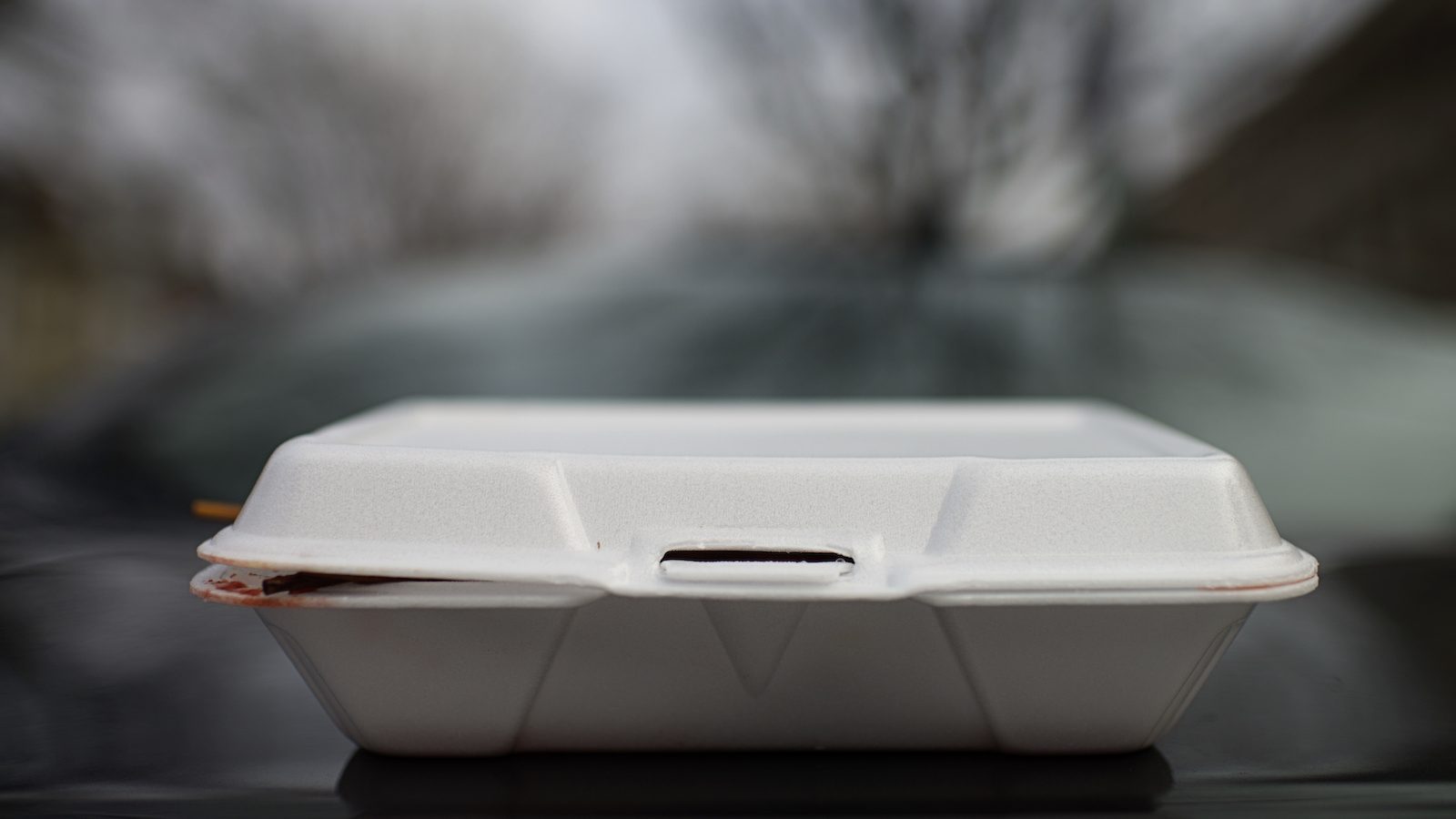Oregon on Monday became the 10th state in the U.S. to ban polystyrene foam food containers, dealing another blow to a plastic whose chemical components have been linked to cancer and nervous system damage.
Starting in 2025, a new law signed by Governor Tina Kotek will ban the production, sale, and distribution of polystyrene foam cups and takeout food containers — as well as coolers and packing peanuts — anywhere in Oregon. It’s part of a broader legislative effort in the Beaver State to replace single-use plastics with reusable alternatives.
The polystyrene law also bans toxic “forever chemicals” in food packaging, and a second bill signed by Kotek will make it legal for consumers to bring their own reusable takeout containers to restaurants.
The legislation was “a long time coming,” said Oregon state Senator Janeen Sollman, a Democrat who cosponsored both bills. Banning polystyrene foam, in particular, had been a longtime priority for her, and she said it took a bipartisan coalition of legislators to finally push the measure through.
Polystyrene foam, a kind of plastic made from fossil fuels and synthetic chemicals, has long been considered a scourge to public health and the environment. Its primary building block, styrene, is a probable human carcinogen that can leach from the material over time, or when polystyrene is exposed to high heat. Because polystyrene foam is nonrecyclable, it often winds up on beaches or in the ocean, where it breaks into smaller fragments called microplastics that can harm marine life.
Hundreds of cities across the country have already banned polystyrene foam — including Portland, Oregon, where the material has been outlawed since 1990 — and state-level restrictions have gained steam in recent years. Besides Oregon, nine other states and the District of Columbia have banned polystyrene foam food containers, and Hawai’i and California have de facto bans. Many of those bans, like Oregon’s, also include coolers and polystyrene packing peanuts.
Oregon’s legislation also goes beyond polystyrene to prohibit per- and polyfluoroalkyl substances, or PFAS, from being intentionally added to plates, bowls, cups, and other foodware. Tara Brock, Pacific counsel for the nonprofit Oceana, said this was important to ensure that polystyrene isn’t replaced with “regrettable alternatives,” since many foodware products made from paper or other types of plastic are treated with PFAS to give them water- and oil-repellent properties. PFAS, known colloquially as “forever chemicals,” do not break down naturally over time and have been found in the bloodstreams of 97 percent of Americans and hundreds of nonhuman animal species. They’ve been linked to cancer, high blood pressure, and elevated cholesterol.
Oregon is now the 12th state to ban PFAS from food packaging, following Washington, California, New York, Vermont, and others.
Under Oregon’s law, people who sell or distribute polystyrene packing peanuts or foodware treated with PFAS after January 1, 2025, may incur a civil penalty of up to $500 a day. Food vendors distributing polystyrene foam food containers will be liable for a smaller penalty of up to $100 a day.
Oregon state Representative Maxine Dexter, a Democrat, said the bans on PFAS and polystyrene are part of a more holistic effort to move beyond single-use foodware altogether, since most plastic is not recyclable and disposable alternatives made of paper or metal come with their own environmental impacts. The second law signed by Kotek directs the Oregon Health Authority to adopt rules by June 30, 2024, allowing consumers to bring their own containers to restaurants so they can be filled with food. The state’s Department of Agriculture adopted similar rules for grocery stores, which often sell staples like rice and beans in bulk bins, in February.
“We can’t recycle our way out of this issue; we absolutely have to use less,” Dexter told Grist. A big part of that is reduced plastic production, which Oregon is pursuing through a 2021 law that will make companies financially responsible for the waste they generate starting in 2025. But Dexter said new laws are also needed to shift consumer behavior, encouraging more people to carry reusable containers with them on a daily basis.
Oregon’s new reuse law could also protect those who are already familiar with refilling their own jars, tins, and tubs. “A lot of Oregonians have been doing this reuse behavior” and didn’t know it wasn’t allowed under the health code, according to Brock. “I’ve always been that person who brings my old yogurt container to the restaurant to take home my leftovers … We just want to make sure we’re doing it in a way that is safe for consumers.”
Brock said she’s eager for more states to follow Oregon’s lead, and potentially for federal lawmakers to take action to reduce single-use plastics — an objective that’s supported by three-quarters of American voters, according to a recent Ipsos poll conducted for Oceana. The Break Free From Plastic Pollution Act, a bill proposed in 2021, is the strongest example of such a federal policy, and it’s expected to be reintroduced this legislative session. If passed, the act would ban most single-use plastics and place a moratorium on new or expanded plastic production facilities.



